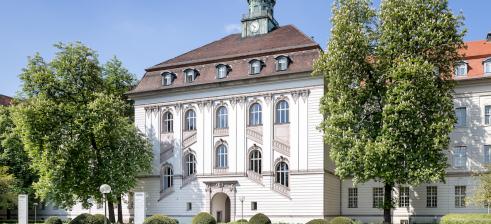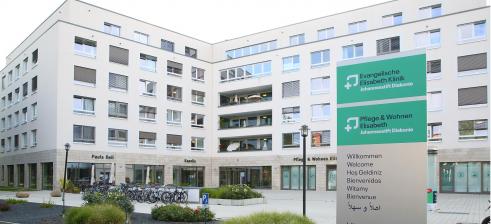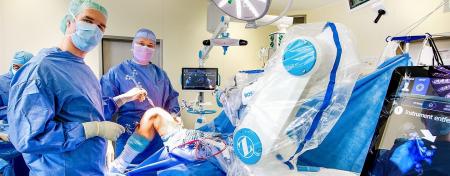Transplant Medicine in Berlin

For patients suffering from a severe heart, liver, kidney or lung function disorder, an organ transplant is often their only hope. In Germany alone, several hundred patients are currently waiting for a donor heart. Human organ transplants are subject to a strict transplant law in Germany. It stipulates among other things that a patient must receive a donor organ based on their degree of need and the chances of a successful outcome, and not according to financial criteria. Transplants are performed exclusively in certified transplant centres.
The kidneys and parts of the liver can be transplanted as living organs. Before the transplant is performed, extensive tests are conducted to ensure the compatibility of donor and recipient. New techniques mean that kidney transplants can be carried out even if donor and recipient have different blood groups. The entire process is subject to extremely high requirements. In Germany, living donations are only permissible between close relations or those with close personal ties. To rule out any psychological dependence or possible coercion, extensive psychological tests are carried out in addition to the medical examinations.
Improved surgical techniques and advances in immunotherapy mean that the chances of a successful organ transplant have risen considerably. Follow-up care is an intensive phase lasting roughly four to six weeks, and is the critical stage of treatment. Any patient who receives a donor organ will have to take drugs for the rest of their life to protect against transplant rejection. Regular check-ups will also be necessary for the rest of the patient’s life – at very short intervals at first, and gradually with longer and longer gaps. Before undergoing a transplant, international patients should therefore ensure that they can obtain the necessary after-care and continual check-ups in their home countries.
Hospitals and doctors' surgeries
2 results
Comprehensive medical care

Your Checklist – for a pleasant stay
-
1 Preparations
Describe your concerns and send the necessary documents to the hospital.
-
2 Relevant documents
Inform yourself about your medical visa and select all documents.
-
3 Stay
Inform yourself in time about your hospital and a appropriate accommodation.
-
4 After discharge
Verify if you will need a medication or further treatment.






